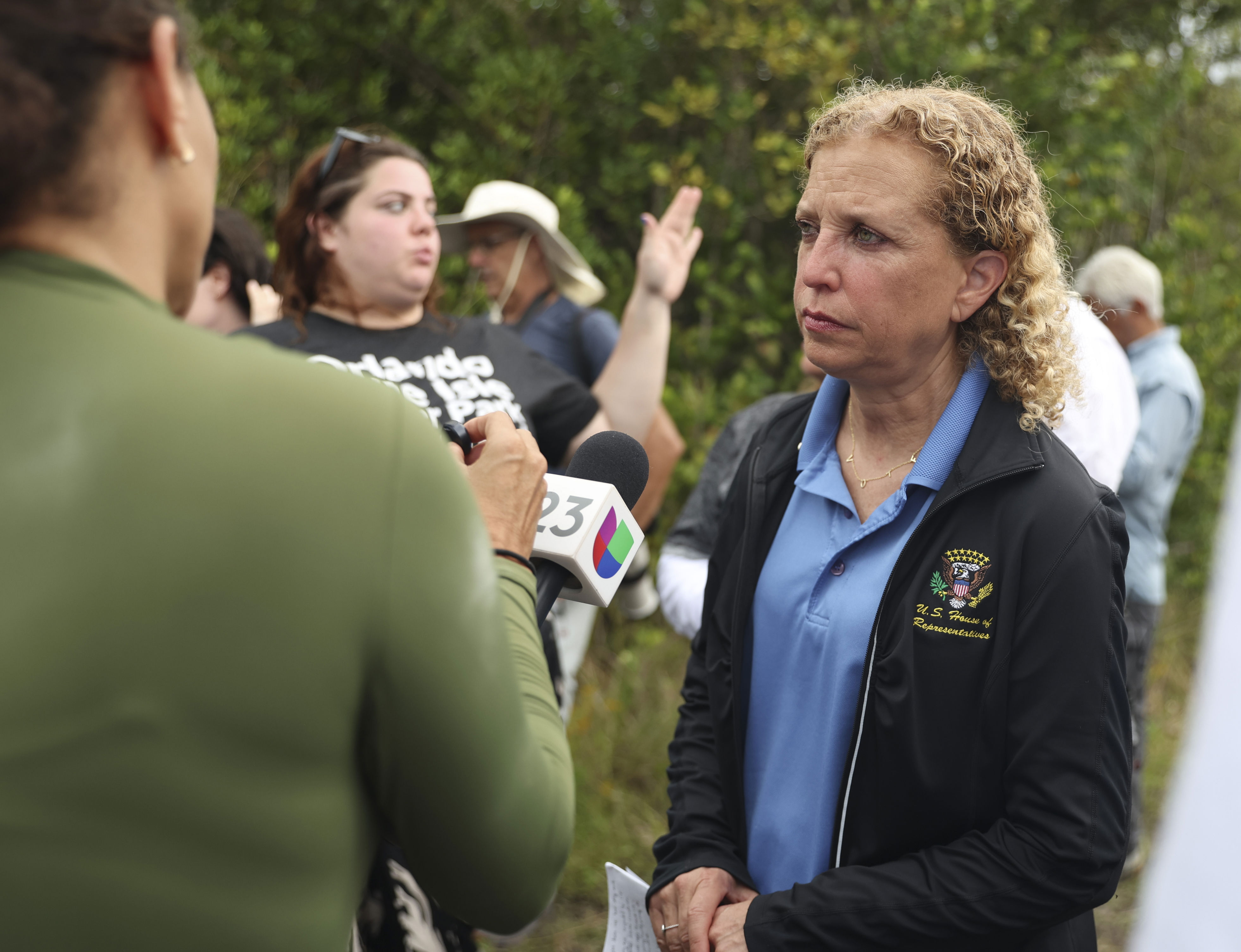Democrats Demand Closure of 'Alligator Alcatraz' After Alleged Staged Visit

A Controversial Detention Center Sparks Political and Environmental Backlash
In Miami, a pop-up tent immigration detention center known as “Alligator Alcatraz” has become the focal point of a heated political and environmental debate. The facility, hastily constructed by Florida Governor Ron DeSantis in the Everglades, has drawn sharp criticism from Democratic lawmakers who have called for its closure following a recent inspection.
The detention center, which was set up to hold immigrants, is part of DeSantis’ broader effort to align with former President Donald Trump’s tough stance on immigration. The governor has positioned Florida as a key partner in the administration’s plan to detain and deport millions of undocumented immigrants. This move has sparked significant controversy, especially after reports emerged about the living conditions at the site.
First Inspection by Elected Officials
On Saturday, at least five members of Congress and around 20 state legislators visited the facility for their first official inspection since it opened about a week ago. The tour came after President Trump visited the site earlier this month, accompanied by DeSantis and Homeland Security Secretary Kristi Noem. Since then, news outlets have reported on the dire conditions faced by detainees.
Democratic lawmakers raised concerns about several aspects of the facility, including the quantity of food provided, access to drinking water, and the high temperatures inside the tents. Rep. Debbie Wasserman Schultz described the facility as an “internment camp,” highlighting the overcrowded conditions where 32 detainees were reportedly packed into each cage.
Contrasting Perspectives
While Republicans defended the facility, calling it clean and well-maintained, Democrats expressed skepticism. They claimed that they were given a “sanitized” version of the center and were not allowed to speak directly with detainees or enter the tents where people were housed.
GOP state Sen. Blaise Ingoglia, a close ally of DeSantis, defended the conditions, stating that the facility was “clean, air conditioned, and well-kept.” He also mentioned that he found the beds comfortable and noted that lawmakers could request to speak with specific detainees if they provided names at least 48 hours in advance.
However, some lawmakers criticized the lack of transparency. Rep. Maxwell Frost accused the state of obscuring potentially dangerous and unsanitary conditions. He plans to conduct unannounced visits in the future to speak with family members of those detained and to investigate the authority under which the facility operates.
Environmental and Legal Concerns
Beyond the political divide, “Alligator Alcatraz” has also drawn backlash from environmentalists, who have sued to stop the facility. Critics argue that the location in the Everglades threatens the fragile ecosystem and tribal lands. Some Republicans have privately expressed concerns about these environmental impacts, though lawmakers said they didn’t have time to ask questions about the ecological implications during the tour.
Democratic state House leader Fentrice Driskell highlighted the high cost of the facility, estimating it at $450 million annually. She questioned how much of the expense would be reimbursed by the federal government and criticized the lack of information provided during the tour. Driskell also mentioned that the visit was abruptly cut short due to a security issue, which she claimed prevented further inquiry.
Calls for Transparency and Accountability
During the tour, members of Congress and state legislators were not allowed to bring phones or cameras, and state lawmakers were prohibited from bringing staff. Kevin Guthrie, Florida’s executive director of emergency management, led the tour. Republican state Sen. Jay Collins, who has experience in disaster relief, compared the setup to facilities he has seen in emergency situations and praised the backup generators and overall preparedness.
Despite these claims, many lawmakers remain skeptical. They argue that the facility’s operations are shrouded in ambiguity, with unclear lines of authority between state and federal officials. Driskell emphasized that the tour appeared pre-planned and staged, suggesting that the state was trying to present a favorable image.
As the debate over “Alligator Alcatraz” continues, the calls for transparency, accountability, and humane treatment of detainees grow louder. The facility remains a flashpoint in the ongoing national conversation about immigration policy, environmental protection, and the role of state and federal governments in managing such complex issues.
Komentar
Posting Komentar